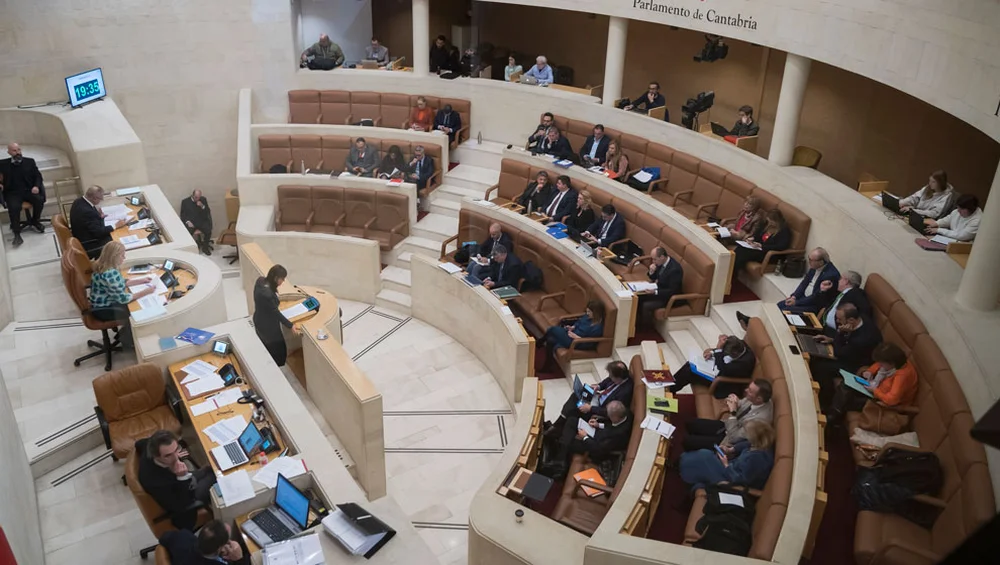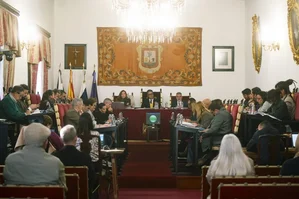Controversy Over Privatization of Hospitality Services in Alto Campoo Heats Up in Cantabrian Parliament

In a move that has sparked significant debate and concern, the proposed privatization of hospitality services in the Alto Campoo ski resort in Cantabria, Spain, is set to be a central issue in the upcoming parliamentary session.
Background and Context
Alto Campoo, a popular ski destination in the Cantabrian Mountains, has long been a public facility managed by the regional government. However, the current administration has put forward a plan to privatize the hospitality services, including restaurants, bars, and other amenities within the resort. This decision has been met with strong opposition from various stakeholders, including local residents, business owners, and political opponents.
Lists of Waiting Dependents at the Forefront
One of the key concerns is the potential impact on the lists of waiting dependents who rely on these services. The privatization could lead to changes in employment conditions, pricing, and accessibility, which might adversely affect those who have been using these facilities for years. Local communities are worried that the privatization will result in higher costs and reduced services, making it difficult for dependents to continue using the facilities.
Parliamentary Debate
The issue is scheduled to be discussed in the Cantabrian Parliament, where it is expected to be a contentious topic. Opposition parties have vowed to challenge the privatization plan, arguing that it goes against the public interest and could harm the local economy. They contend that public management has ensured affordability and accessibility for all users, and that privatization would undermine these principles.
Local Reaction
Local residents and business owners have expressed their dissatisfaction with the proposed plan. Many have pointed out that the public management of the hospitality services has been a cornerstone of the community, providing jobs and ensuring that the facilities remain accessible to everyone. There are fears that privatization could lead to a decline in the quality of services and an increase in prices, which would be detrimental to both locals and tourists.
Political Implications
The debate over the privatization of Alto Campoo's hospitality services has significant political implications. The ruling party's decision to push forward with privatization has been seen as a test of their commitment to public services. Opposition parties are using this issue to highlight what they see as a broader trend of neglecting public interests in favor of private profits.
As the Cantabrian Parliament prepares to address this contentious issue, the outcome remains uncertain. The decision will not only affect the future of Alto Campoo but also reflect the broader political landscape of the region. For expats living in Spain, this debate serves as a reminder of the ongoing discussions around public vs. private management of key services and the impact such decisions can have on local communities.
Related Stories

Municipalities in Spain Transfer Contracting Competencies to Regional Government
In a bid to enhance efficiency, Spanish municipalities are transferring public contracting competencies to regional governments, aligning with the Digital Spain 2025 agenda for streamlined processes.

Defensor del Pueblo Initiates Investigation into YouTube Channel Complaint by Unidos x Laredo
Spain's Ombudsman investigates a complaint by Unidos x Laredo against a YouTube channel, highlighting the role of the Defensor del Pueblo in protecting rights.

Spanish Government Faces Setback as Congress Rejects Omnibus Decree, Impacting Pensions and Transport Subsidies
Spanish government's key decree on pensions and transport subsidies rejected by Congress, impacting millions and sparking political fallout.

La Laguna City Council Approves €226 Million Budget for 2025
La Laguna City Council approves a €226 million budget for 2025, focusing on infrastructure, social programs, and cultural events to enhance city life.

Free Parking Proposal for Residents in Specific Zones Gains Traction in Spain
Spain's Izquierda Unida proposes free parking for residents in specific zones, aiming to ease urban living costs and align with EU's sustainable mobility goals.